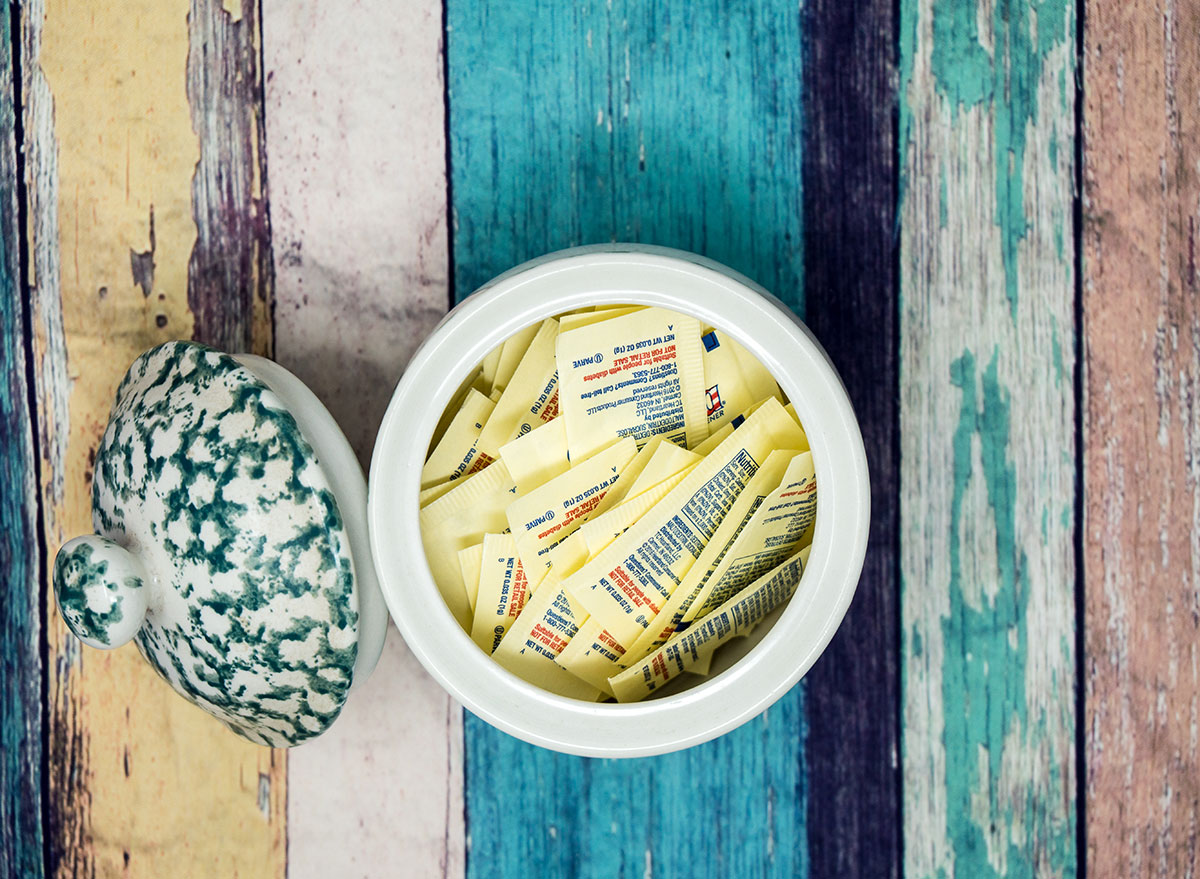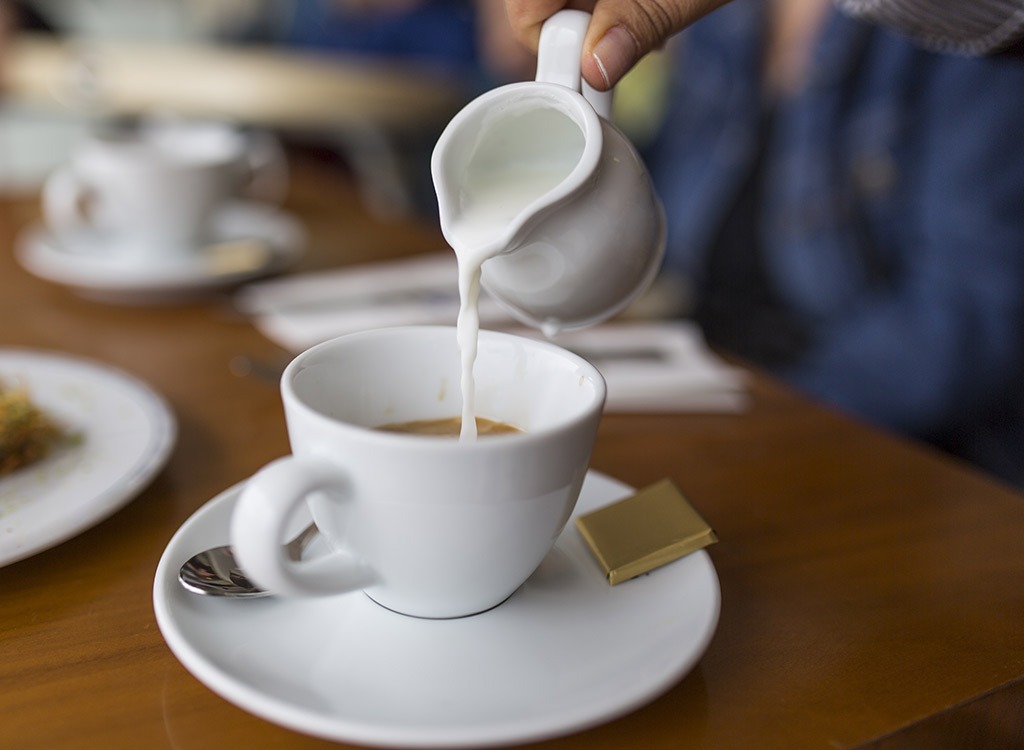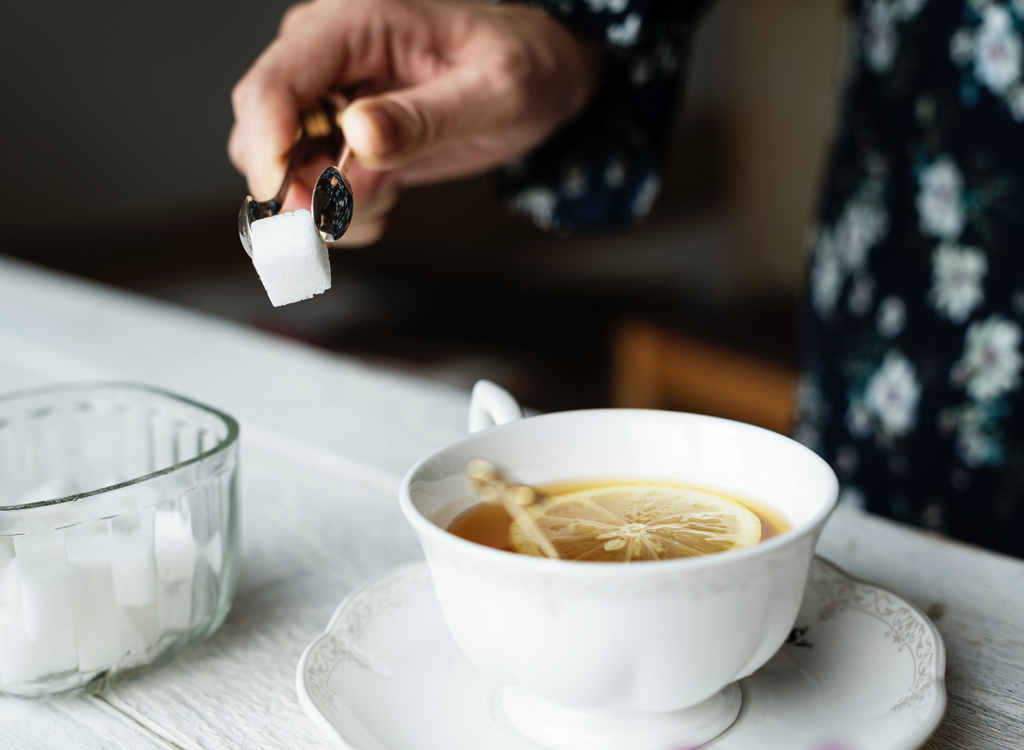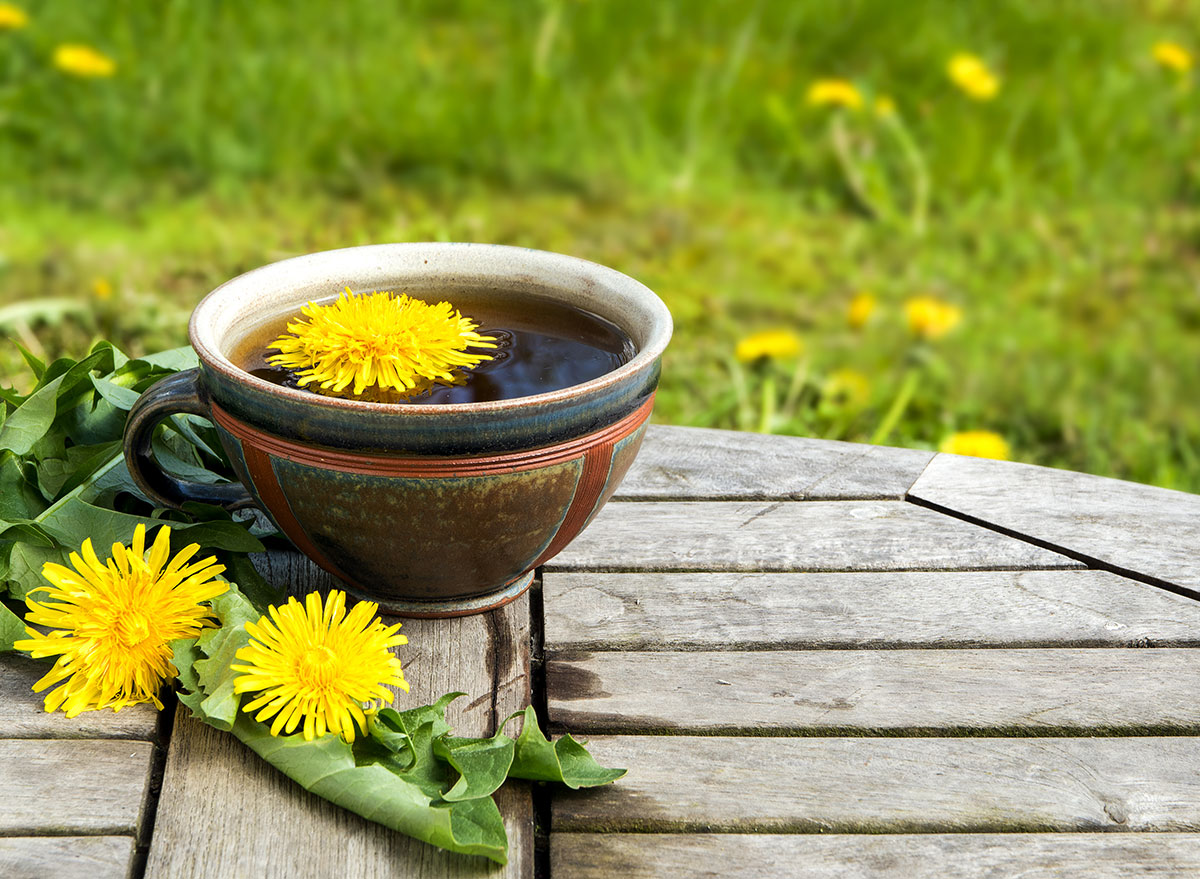6 Ways to Make Tea for a Flat Belly

Regardless of whether or not you’re trying to lose weight, tea deserves a spot in your diet. Why? It’s completely free of calories, sugar, and fat yet super flavorful—making it a viable replacement for less healthy beverages. Unfortunately, there are no real magic shortcuts when it comes to achieving a toned mid-section—it takes a combination of smart food choices, portion control, as well as consistent exercise. However, there are a number of ways to make tea for a flat belly that can definitely supplement your efforts. And no, we’re not talking about those questionable “flat belly teas” that influencers are hawking on Instagram.
The best ways to reap the tummy-flattening effects of tea are to select the right varieties and be mindful about what you add to flavor them. Loading your tea with cream, sugar, or sweetened syrups is a surefire way to cancel out tea’s health benefits. Fortunately, there are plenty of other ways to enhance the taste of your tea without compromising your waistline.
“When you’re dehydrated, your body retains water,” says Jessica Bippen, RD and Essentia Water Nutrition & Wellness Advisor. “This can lead to feeling bloating and swollen. Drinking tea is an excellent way to increase your fluid intake and by staying hydrated you’re allowing your body to function optimally and efficiently flush out harmful toxins. Plus, adequate hydration supports overall digestion by increasing GI motility.”
Here are some expert-approved tips on how to make a delicious cup of tea at home—without racking up the calorie count. And for even more tips, be sure to check out our list of 15 Underrated Weight Loss Tips That Actually Work.
Choose the right tea.

“While all traditional teas—black, oolong, green and white—and herbal teas made from herbs, fruits, spices, roots and leaves other than Camellia sinensis plant are considered healthy due to their polyphenol content, certain teas can help reduce bloat and aid digestion,” says Bippen. “There are numerous teas that can reduce bloat and aid in digestion, the most common being ginger, fennel, peppermint, and dandelion.”
There’s plenty of research to back this up. For example, a 2014 study found that participants who consumed three cups of black tea daily lost significantly more weight and reduced their waist circumference more than the non-tea drinkers. Another 2008 study revealed that dandelion can actually decrease how much fat your GI tract absorbs.
“Dandelion tea provides a natural diuretic effect,” Bippen adds. “This increases your body’s urine output which removes fluid from the body through the kidneys. By removing excess fluid, dandelion tea can help decrease bloating and water weight.”
And a 2010 review determined that white tea can help increase your metabolism by 4-5%, allowing you to burn off an extra 70 to 100 calories per day. Green and black tea are considered natural diuretics—meaning they’ll help your body flush out water and salts when you’re feeling bloated.
Don’t forget to read up on the 7 Teas That Melt Belly Fat.
Avoid artificial sweeteners.

You may assume swapping honey or sugar for a calorie-free alternative is a smart move, but Bippen advises against adding artificial sweeteners to your tea.
“The body doesn’t digest and absorb sugar alcohols such as sorbitol, mannitol, or xylitol,” she says. “Instead, sugar alcohols actually get fermented by bacteria in the digestive tract. This can negatively affect some individuals causing bloating and gas and even have a laxative effect.”
One 2019 study suggested that certain calorie-free sweeteners, including sucralose and stevia, actually alter the gut microbiota—which is noteworthy given that an imbalance of bacteria in your gut can cause bloating, diarrhea, and general discomfort. Those bacteria can also affect how your body digests certain foods, as well as produce chemicals that help make you feel full. In other words, having a balanced microbiome is key to maintaining a healthy weight—and artificial sweeteners could sabotage that.
Here’s What Happens to Your Body When You Eat Artificial Sweeteners.
Drink it warm.

Think twice before you pour that tea over ice—according to Bippen, enjoying it hot is the best way to reap its tummy-flattening effects.
“Drinking warm tea may help reduce bloat and encourage bowel movements,” says Bippen. “Warm liquid has been shown to stimulate the GI tract and promote motility. It’s also thought that icy cold tea may slow down digestion by shrinking blood vessels surrounding the stomach, and slow digestion can result in feeling bloated.”
Here’s The #1 Best Tea for Fat Loss, According to Nutritionists.
Be cautious with adding dairy.

Did you know that a majority of the adult population—65%—has a reduced ability to digest lactose? If you’re one of those people, adding milk or cream to your tea may leave you with abdominal pain, bloating, gas, nausea, and diarrhea.
“The ability to digest dairy differs from person to person,” says Bippen. “The good news? There are many dairy-free milk options to choose from. Plant-based options like almond, oat, or coconut milk beverages are naturally lactose-free.”
Better yet, many of these alternatives are lower in sugar and fat than cow’s milk—as long as you’re choosing unsweetened varieties.
“One caveat with plant-based milks is that they often include gums or other additives for a smoother mouth-feel and to prevent separation,” adds Bippen. “While these are safe to consume, some individuals have trouble digesting them. If this is the case for you, opt for plant-milks without added gums or other additives.”
Go easy on the sugar.

The reality is, all varieties of sugar can be harmful if you consume a lot of them—even natural ones, so it’s best to limit your intake overall.
That said, honey tastes sweeter than sugar, meaning you can use less of it to enhance the flavor of your tea. It also has a lower glycemic index than sugar, so it doesn’t raise your blood sugar as quickly. Best of all, honey contains certain vitamins, minerals, and antioxidants that table sugar doesn’t have. Some studies have even shown that raw honey, in particular, can lower triglyceride levels and reduce both total and LDL (bad) cholesterol.
Coconut sugar is another option that’s lower on the glycemic index than sugar, and it contains a soluble fiber called inulin that can increase feelings of fullness and slow down digestion.
Remember, though, that these natural sweeteners are comparable in calories to traditional refined sugar, so you’ll still want to limit your portions as much as possible—for example, try only adding about a teaspoon of honey, which contains around 20 calories.
Here are the Side Effects of Eating Too Much Sugar, Say Dietitians.
Incorporate digestion-supporting ingredients.

According to Bippen, some plant roots commonly found in tea—like dandelion and burdock—also contain inulin.
“This type of prebiotic fiber acts as fuel for the good bacteria in your intestinal tract,” she explains. “This can help support overall digestion and a healthy gut microbiome.”
Bippen also highly recommends adding an inch of fresh ginger root to your tea after a heavy meal, as it can help speed up stomach emptying, relieve digestive upset, and reduce intestinal cramping, bloating, and gas. She notes that it also has properties that can reduce bloat-causing inflammation and protect the stomach lining.
“Making your own tea with fresh ginger root ensures the beneficial compounds in ginger—such as gingerols—are also present in its tea,” Bippen explains.
Other ingredients that she recommends seeking out for their de-bloating effects include lemon balm, camomile, fennel, and peppermint.